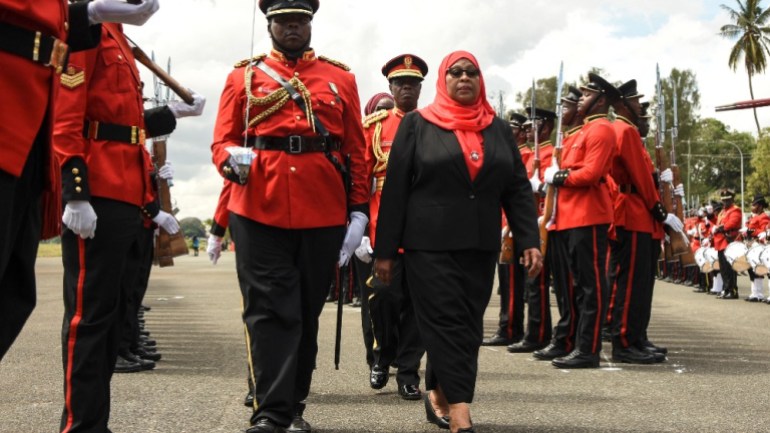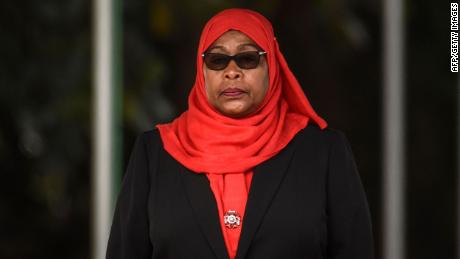Samia Suluhu Hassan signals a shift in approach from the COVID-scepticism of her late predecessor John Magufuli.
![Tanzania has not reported coronavirus data since May last year [File: Reuters]](https://www.aljazeera.com/wp-content/uploads/2021/04/2021-02-26T182026Z_121049082_RC2I0M9RJN35_RTRMADP_3_HEALTH-CORONAVIRUS-TANZANIA.jpg?resize=770%2C513)
Hassan announced she would create an expert coronavirus task force to advise her government, saying they would canvass global opinion on the pandemic and make recommendations about “remedies” and policies.
- Carl Frampton retires after losing to Jamel Herring in WBO world title fight
- Vaccine passports are latest flash point in COVID politics
“It is not proper to ignore it. We cannot reject or accept it without any evidence from research,” Hassan told her newly appointed permanent secretaries at a swearing-in ceremony in Dar es Salaam on Tuesday.
“They [experts] will tell us more about the pandemic, and advise us about what the world is proposing. We cannot accept everything as it comes, but we also cannot isolate ourselves as an island while the world is moving in a different direction.”
Hassan became Tanzania’s first female president last month following the death of John Magufuli.
Magufuli, who Hassan said died of heart disease at 61, had dismissed the threat from the coronavirus pandemic – saying God and steam remedies would protect Tanzanians.
He opposed mask-wearing and social distancing and denounced vaccines as part of a Western conspiracy to take Africa’s wealth.

Tanzania has not reported coronavirus data since May last year. The World Health Organization repeatedly urged the government to be more transparent but was ignored.
Hassan has vowed to “start where Magufuli ended” and all eyes have been on potential changes to the country’s policies and openness regarding COVID-19.
“We cannot be reading about COVID-19 in the world and when you reach sections about Tanzania, one find[s] gaps. I think we need to be clearer whether we accept or not,” she said.
Media freedoms
In another policy announcement, Hassan ordered that officials “free” media outlets banned by her predecessor, whose administration was criticised for a heavy-handed crackdown on the press.
“We should not give any room to say that we are suppressing media freedom,” she said.
“Our regulations should also be clear for every offence and their punishment. We should not use force to ban media platforms.”
No media outlets were mentioned by name, but last year Tanzania’s Daima newspaper was indefinitely banned, while broadcaster Wasafi TV and online network Kwanza TV were handed suspensions.
Tanzania was long seen as a haven of stability and democracy in an otherwise volatile region, but alarm grew over a slide into autocracy under Magufuli’s rule.
Most foreign media were not allowed into Tanzania to cover the 2020 presidential election in which Magufuli and Hassan, then his deputy, won a second term in a disputed vote.





